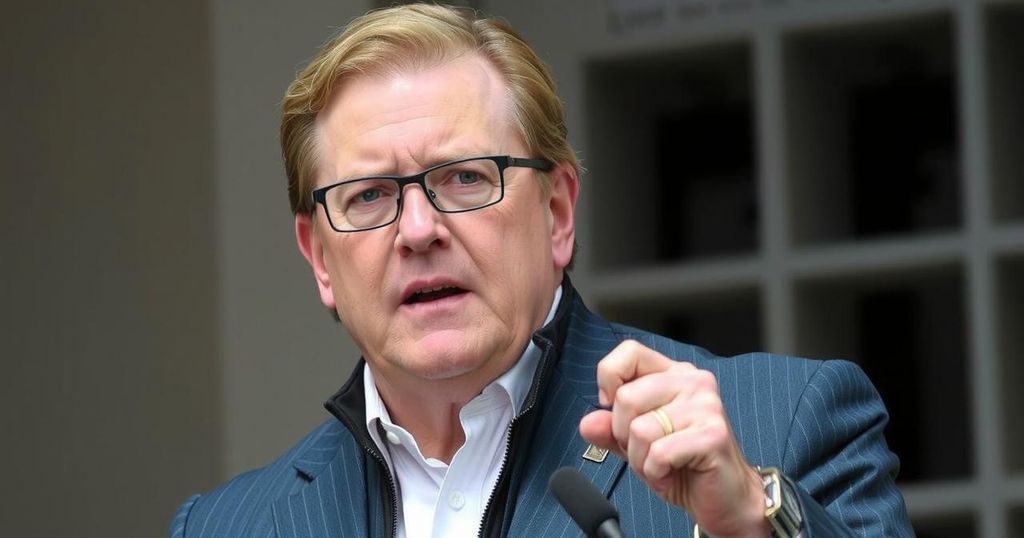Germany Accuses Elon Musk of Attempting to Interfere in National Elections
German officials have accused Elon Musk of trying to influence upcoming elections by endorsing the far-right AfD party, claiming his remarks are strategically timed and potentially inappropriate. Despite criticism, Musk argues that the AfD is positioned to lead Germany toward fiscal responsibility and innovation.
In a recent development, German government officials have accused Elon Musk, the founder of Tesla, of attempting to meddle in the nation’s upcoming parliamentary elections by promoting the far-right Alternative for Germany (AfD) party. This allegation stems from Musk’s social media endorsements and a recent op-ed wherein he criticized the existing government and lauded the AfD’s economic platform. Officials argue that his statements are strategically timed to influence the electorate just weeks ahead of the elections planned for February.
Musk has publicly defended the AfD, stating that it represents the best chance for financial responsibility in Germany. His remarks, particularly an assertion from his op-ed that the depiction of the AfD as extremist is erroneous—highlighting the sexual orientation of its co-chair—have provoked backlash from political figures and citizens alike. In response, German government spokesperson Christiane Hoffmann affirmed that while Musk is entitled to his views, his comments were inappropriate given their timing before a major election.
Moreover, Musk has criticized Chancellor Olaf Scholz, referencing him disdainfully, while declaring that only the AfD can salvage the German economy amidst claims that mainstream parties have failed to address key issues such as economic stagnation and social unrest. His focus on regulatory reform and bureaucracy has resonated with a segment of the electorate, causing alarm among established political leaders. With all mainstream parties distancing themselves from the AfD, Musk’s endorsement raises serious concerns over foreign influence in German politics.
The situation arises in the context of Germany’s upcoming snap parliamentary elections in February 2024, wherein the Alternative for Germany (AfD) party is seeking to assert its presence as a viable political alternative. The AfD, known for its far-right policies and past associations with extremist ideologies, has been largely ostracized by mainstream parties. Musk’s comments and op-ed present a significant deviation from established political discourse, invoking concerns regarding external interference in national electoral processes.
In summary, Elon Musk’s recent endorsements of the AfD have drawn significant scrutiny from German officials, who contend that his influence attempts are untimely and potentially disruptive to the political landscape. The backlash from both U.S. legislators and German leaders underscores the broader implications of foreign individual interference in domestic affairs, particularly in fragile political climates. As elections approach, the ramifications of Musk’s statements will likely continue to unfold, warranting close observation.
Original Source: www.foxnews.com




Post Comment